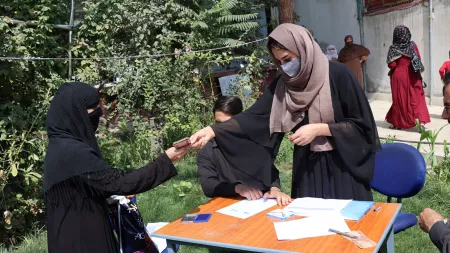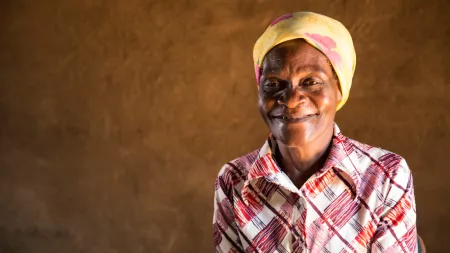The importance of cash and voucher assistance in emergencies
Cash and voucher assistance (CVA) refers to humanitarian programs where cash or vouchers for goods or services are directly provided to our program participants. CARE International uses CVA to respond to both sudden and slow onset and protracted crises, including in response to the COVID-19 pandemic.
Giving cash to people affected by crises has increasingly shown to be a more effective, efficient and transparent means of providing vulnerable people with humanitarian assistance. It gives people the dignity, choice, and self-determination to make their own decisions on how to prepare, prioritize, and take care of their families in times of crisis.
In Bangladesh and Cambodia for example, 50% to 67% of garment workers said that their biggest need was cash. In Azraq Refugees Camp in Jordan, cash assistance was preferred by 30% of respondents.
What is CARE International doing to increase access to cash and voucher assistance in emergencies?
CARE International and partners are committed to the use of market-based approaches in fragile contexts. Cash and voucher assistance is a core component of our humanitarian and, increasingly, our development work.
The COVID-19 pandemic challenged the ways CARE delivers CVA and led to adaptation measures to ensure safer implementation of ongoing CVA.
-
In Somalia, CARE International suspended the use of biometric data collection (fingerprints) and moved to registration by phone.
-
In Ethiopia, CARE International switched from cash for work to unconditional cash transfers to reduce the risk of transmission.
-
In Niger and Nigeria, CVA recipients were provided with three months of transfers at once to reduce risk of exposure and in anticipation of further market disruption.
-
CARE Zimbabwe compressed two months’ cash payments by doubling up cash transfers through mobile money. Participants were then able to make anticipatory purchases of food and non-food items before and during the lockdown period.
In these countries we were able to learn quickly and apply skills in real time that have informed our ongoing CVA work.
Gender-responsive cash and voucher assistance
When feasible, appropriate, and safe, CARE International uses gender-responsive cash and voucher assistance to support humanitarian outcomes.
Our expertise and large-scale experience with Village Savings and Loan Associations (VSLAs), allowed us to adapt that model to the humanitarian context, which gave rise to the Village Savings and Loan Associations in Emergencies, or VSLAiE.
Our experience shows that when VSLAiE is combined with cash assistance, it creates a unique value proposition at scale, supporting both women’s leadership and economic empowerment, while also contributing to life-saving response. Further to this, members of VSLAs are frequently the first responders in an emergency; offering community and household safety nets and serving as change agents and powerful vehicles for women’s leadership.
We believe that by integrating VSLAs, CVA, and gender-transformative approaches will support people to better react to, respond to, and recover from crisis.


